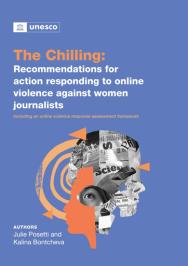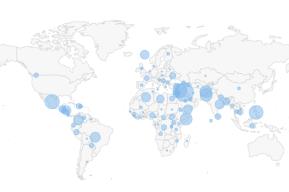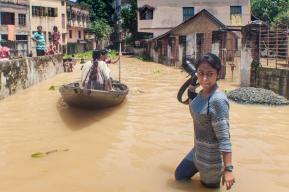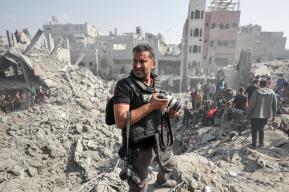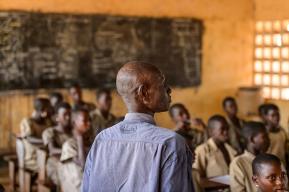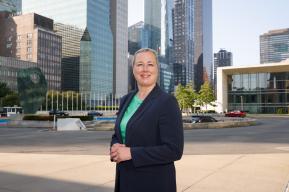Idea
Defending Truth on the Frontlines: Protecting Journalists in the Face of Adversity

In an era where press freedom faces unprecedented challenges, recognizing and supporting journalists who take risks to uphold this fundamental right is crucial. Nima Elbagir, a distinguished investigative journalist and newly appointed member of the UNESCO/Guillermo Cano World Press Freedom Prize Jury, shares her insights on the pressing issues confronting journalists globally and the imperative of collective action to safeguard their freedom.
UNESCO: Ms Elbagir, congratulations on your nomination to World Press Freedom/Guilermo Cano Prize Jury and UNESCO thank you for accepting this role. This prize rewards a person, organization or institution that has made a notable contribution to the defence and/or promotion of press freedom anywhere in the world, especially if risks have been involved. In most cases it has been awarded to investigative journalists, just like you - what in your opinion are the major pushbacks against this form of journalism?
NE: It feels like everywhere we see new evolutions, greater precision, in the targeting of journalists. We see campaigns launched by special interest groups targeting advertisers and editorial staff. Often funded - directly or indirectly - by wealthy backers to undermine reputations and seed accusations of prejudice and bias. Threats of loss of jobs, long-term livelihoods, and threats to lives. The list of pushbacks and dangers to journalists today can feel endless, which is why the World Press Freedom Prize so important. The global recognition it brings can help provide a measure of protection.
UNESCO: This award recognizes journalists who defend press freedom in difficult circumstances around the world through fearless reporting, often against the odds. Your investigative stories have taken you to some of the dangerous places to report from, for which you have won awards, including the 2018 Courage in Journalism Award. What is your inspiration as an international correspondent in taking personal risks for the sake of a story, and what should other journalists learn from you?
NE: I’m very aware, having previously worked in my home country as a journalist, of the privilege of the platform I enjoy now as a CNN correspondent. A platform that brings with it protections that many journalists working in their home countries don’t have so I feel a sense of responsibility to do what I can. If you have a platform, whether it’s a global platform like CNN or even just an Instagram account with a healthy follower count, you can raise awareness of an injustice or inequity.
UNESCO: One of the emerging areas of attention in protecting press freedom is the issue of displaced journalists or journalists forced into exile because of conflicts or an oppressive political environment. Your own parents were forced to live in exile because of their work as journalists along with you as a child. What do you think would be the best way to support diaspora journalists to continue doing their work as journalists?
NE: here is this uncomfortable distinction made often between “local” and international journalists. We need to work together as journalists. Spotlighting the work of journalists at risk, whether in their home countries or in the diaspora. Lend them the protection of our platforms. Speak their names, click on their work, subscribe to media organisations that feature them.
UNESCO: Female journalists particularly face multiple threats for their work, as journalists and as women, especially through digital attacks, as highlighted by UNESCO-commissioned The Chilling Study which found out that nearly 73% of women journalists surveyed reported having experienced online violence a set of recommendations including a holistic and intersectional approach to dealing with this problem. What is your personal view in this regard?
NE: The problems facing female journalists are the problems all journalists face, with the multiplying factor of misogyny. Online trolling and a rollback on protections on platforms like X are meeting a culture that is increasingly regressing to want to silence women. Sometimes I ask myself, did what we report anger them or is it because the person leading the reporting is a dark-skinned woman? Sadly, the truth is usually both; we are still not comfortable with woman challenging authority, especially women of colour and social media platforms are providing unchecked outlets to violently give voice to that discomfort.
Research discussion paper
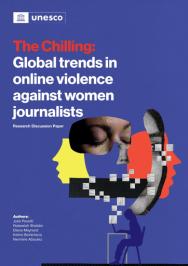
Including an online violence response assessment framework
